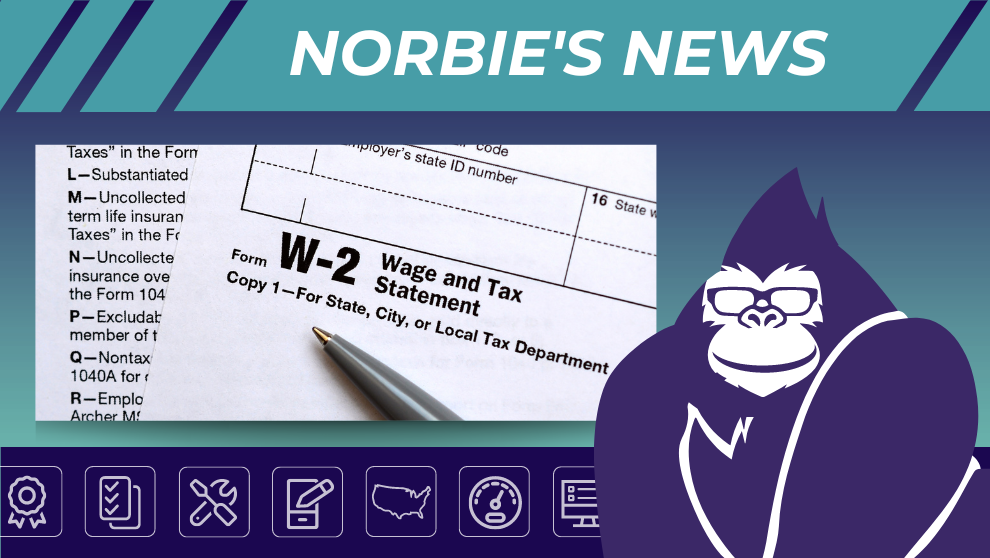
How Mental Health Is Reshaping the Workers' Comp Landscape
SHARE STORY
By Brad Dowling, VP of Workers Comp
For decades, workers' compensation systems have been designed primarily to address physical injuries—tangible harm like broken bones, sprains, or repetitive strain injuries. However, as workplaces evolve and awareness of mental health grows, psychological and emotional injuries are gaining recognition as legitimate work-related conditions. Conditions such as stress, anxiety, depression, and post-traumatic stress disorder (PTSD) are increasingly acknowledged, especially in professions with high exposure to trauma and chronic stress.
In recent years, the demands on the workforce have intensified, particularly for healthcare professionals and first responders. The COVID-19 pandemic, for instance, placed unprecedented stress on these workers, leading to a surge in mental health issues. A 2024 report by Sedgwick highlighted this trend, noting that "mental health has become a highly discussed issue in today’s society in recent years," emphasizing the need for mental health support in workers' compensation systems. As a result, there's a growing movement to integrate mental health considerations into workers' compensation policies, ensuring that employees receive comprehensive support for both physical and psychological injuries.
As state laws continue to evolve and the visibility of psychological injuries grows, the landscape of workers’ compensation is shifting alongside broader conversations about employee well-being.
A Slow Shift: How Mental Health Is Entering the Workers’ Comp Conversation
Mental health has long been the outlier in workers’ compensation systems designed around physical harm. While stress, trauma, and anxiety have always impacted workplace performance, they rarely met the legal thresholds for a compensable injury. That’s beginning to change—“mental health is the next frontier for workers’ compensation,” as noted in a 2024 article by Insurance Business America—but the path to recognition has been anything but straightforward.
Historical Resistance to Mental Health Claims
- Workers’ comp laws were originally built to address visible, acute injuries like fractures, sprains, or repetitive motion disorders.
- “Mental-mental” claims—where psychological harm occurs without a physical injury—were often excluded due to their subjective nature and difficulty in proving causation.
- Inconsistent diagnostic criteria and the stigma surrounding mental illness led to employer skepticism and legal ambiguity.
- Mental health claims were often viewed as personal issues rather than occupational hazards, further distancing them from compensability.
Why That’s Changing
- Societal attitudes have shifted significantly in the wake of global events like the COVID-19 pandemic, with mental health moving to the forefront of workforce concerns.
- Professions like healthcare, education, and emergency response are reporting increased rates of stress and trauma, prompting legislative changes to extend coverage.
- According to a 2024 report from the National Council on Compensation Insurance (NCCI), 64 bills were introduced that address workplace mental injuries, 51 of which specifically focused on PTSD coverage for first responders and healthcare workers.
- Sedgwick’s 2024 commentary on mental health in workers’ comp emphasized that, “The spotlight on mental health is not dimming—rather, it’s gaining intensity, and workers' comp systems are being forced to evolve.”
As mental health becomes an increasingly undeniable factor in employee well-being, employers, insurers, and lawmakers alike are rethinking what qualifies as a workplace injury. While the shift is far from complete, the growing momentum suggests that psychological health is steadily earning its place in the broader workers’ comp conversation.
Recent Legislative Changes and Where They're Happening
In recent years, the landscape of workers' compensation has evolved to acknowledge mental health conditions, particularly for first responders.
Presumption Laws and Expanding Coverage
Presumption laws establish that certain conditions, like PTSD, are presumed to be work-related for specific occupations unless proven otherwise. States such as California, Oregon, and Colorado have implemented these laws for first responders, including firefighters, police officers, and EMTs. For instance, California's Senate Bill 542 created a rebuttable presumption that PTSD in firefighters and peace officers is work-related, easing the path to compensation.
Examples of Other Recent Policy Shifts
- Connecticut: Senate Bill 913, effective January 1, 2024, extends workers' compensation coverage for PTSD to all employees, not just first responders, recognizing the broader impact of work-related trauma.
- Pennsylvania: Act 121 of 2024 lowers the burden of proof for first responders claiming PTSD, allowing diagnoses based on cumulative stress rather than a single traumatic event.
Challenges in State-by-State Variability
Despite these advancements, inconsistencies across states create a complex landscape. While some states have progressive laws recognizing mental health claims, others maintain restrictive policies, leading to disparities in coverage. This patchwork of regulations complicates compliance for national employers and can result in unequal support for workers depending on their location.
As awareness of workplace mental health grows, it's anticipated that more states will reevaluate and potentially reform their workers' compensation policies to provide equitable support for all employees.
Hidden Costs That Aren’t in the Price Tag
Navigating the claims process for mental health-related workers' compensation requires careful attention to documentation, legal requirements, and proactive workplace strategies. Mental health claims are often more complex than physical ones, making early coordination between HR, claims adjusters, and medical professionals essential.
As Sedgwick noted in their 2024 commentary, “without early identification and intervention, mental health claims often become protracted and more costly to manage” (Sedgwick). This makes a structured and informed approach more important than ever.
The Role of Documentation and Causality
Establishing a clear link between the mental health condition and workplace factors is crucial. Key steps include:
- Detailed Incident Records: Documentation of workplace events—such as dates, times, and contextual details—is frequently used to help demonstrate potential contributing factors.
- Supervisor and Witness Statements: Statements from supervisors or coworkers may offer insight into the work environment and any notable incidents or behavioral changes.
- Medical Evaluations: Evaluations by licensed mental health professionals are typically essential in substantiating the nature and extent of the condition.
- Consistent Documentation: Ensure all documentation consistently supports the claim, demonstrating the work-related nature of the mental health issue.
Workplace Considerations for Brokers and Employers
As the conversation around mental health in workers’ compensation continues to grow, many brokers and employers are closely watching several evolving areas of interest:
- Evolving Legislation: State-level policies are shifting to include conditions like PTSD and chronic stress, especially for first responders and healthcare workers.
- Clarifying Coverage: Accurate communication around eligibility and exclusions for mental health claims remains a central concern for those navigating policy frameworks.
- Mental Wellness Initiatives: Programs like EAPs, resilience training, and mental health days are being discussed as part of broader organizational health strategies.
- Rising Claim Volumes: Mental health claims are expected to increase, especially in high-stress industries.
These trends suggest that the role of mental health in workers’ compensation will continue to evolve, prompting industry participants to pay close attention to how policies, programs, and workplace culture interact with claim dynamics.
"Mental health is the next frontier for workers’ compensation..."
Conclusion
Mental health is becoming an increasingly significant component of the workers’ compensation conversation. Conditions like stress, PTSD, and anxiety—once overlooked or excluded—are now receiving more attention from lawmakers, insurers, and workplace stakeholders alike.
As state laws continue to evolve and the visibility of psychological injuries grows, the landscape of workers’ compensation is shifting alongside broader conversations about employee well-being. This shift has prompted renewed attention to how claims are documented, processed, and understood.
With the definition of “workplace injury” expanding beyond the purely physical, the systems that support workers are also being reexamined. Continued awareness of these developments may help all parties better understand the future of workplace protection in an increasingly complex world.
Brad Dowling is Vice President of Workers' Comp of Builders & Tradesmen's Insurance Services, Inc., an Amynta Group Company.
Builders & Tradesmen’s Insurance Services Inc.
BTIS is committed to providing robust, individualized products and the highest level of service. Our easy-to-use commercial insurance platform, educational tools, and helpful underwriters make it simple for producers to diversify their books of business by expanding their product portfolios.
Part of the Amynta Group, BTIS is a nationwide insurance intermediary with a small-business attitude. We believe in building solid relationships through communication and a genuine concern for the success of our retail broker clients and the policyholders they serve.
For additional information, visit www.btisinc.com or call (877) 649-6682


